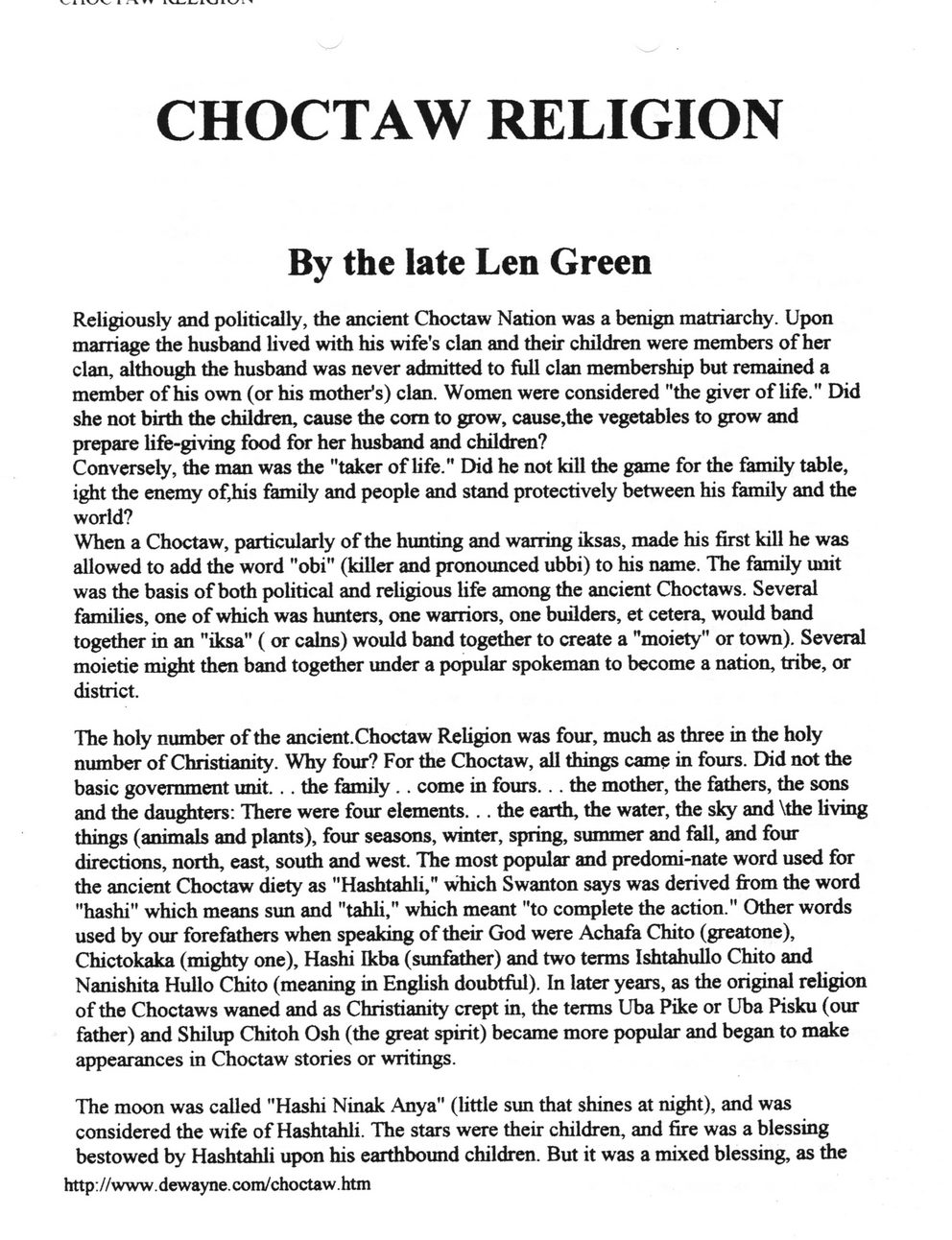This text was obtained via automated optical character recognition.
It has not been edited and may therefore contain several errors.
CHOCTAW RELIGION By the late Len Green Religiously and politically, the ancient Choctaw Nation was a benign matriarchy. Upon marriage the husband lived with his wife's clan and their children were members of her clan, although the husband was never admitted to full clan membership but remained a member of his own (or his mother's) clan. Women were considered "the giver of life." Did she not birth the children, cause the com to grow, cause,the vegetables to grow and prepare life-giving food for her husband and children? Conversely, the man was the "taker of life." Did he not kill the game for the family table, ight the enemy of,his family and people and stand protectively between his family and the world? When a Choctaw, particularly of the hunting and warring iksas, made his first kill he was allowed to add the word "obi" (killer and pronounced ubbi) to his name. The family unit was the basis of both political and religious life among the ancient Choctaws. Several families, one of which was hunters, one warriors, one builders, et cetera, would band together in an "iksa" ( or calns) would band together to create a "moiety" or town). Several moietie might then band together under a popular spokeman to become a nation, tribe, or district. The holy number of the ancient. Choctaw Religion was four, much as three in the holy number of Christianity. Why four? For the Choctaw, all things came in fours. Did not the basic government unit... the family.. come in fours... the mother, the fathers, the sons and the daughters: There were four elements... the earth, the water, the sky and \the living things (animals and plants), four seasons, winter, spring, summer and fall, and four directions, north, east, south and west. The most popular and predomi-nate word used for the ancient Choctaw diety as "Hashtahli," which Swanton says was derived from the word "hashi" which means sun and "tahli," which meant "to complete the action." Other words used by our forefathers when speaking of their God were Achafa Chito (greatone), Chictokaka (mighty one), Hashi Ikba (sunfather) and two terms Ishtahullo Chito and Nanishita Hullo Chito (meaning in English doubtful). In later years, as the original religion of the Choctaws waned and as Christianity crept in, the terms Uba Pike or Uba Pisku (our father) and Shilup Chitoh Osh (the great spirit) became more popular and began to make appearances in Choctaw stories or writings. The moon was called "Hashi Ninak Anya" (little sun that shines at night), and was considered the wife of Hashtahli. The stars were their children, and fire was a blessing bestowed by Hashtahli upon his earthbound children. But it was a mixed blessing, as the http://www.dewayne.com/choctaw.htm

Native Americans Choctaw-Religion-(1)